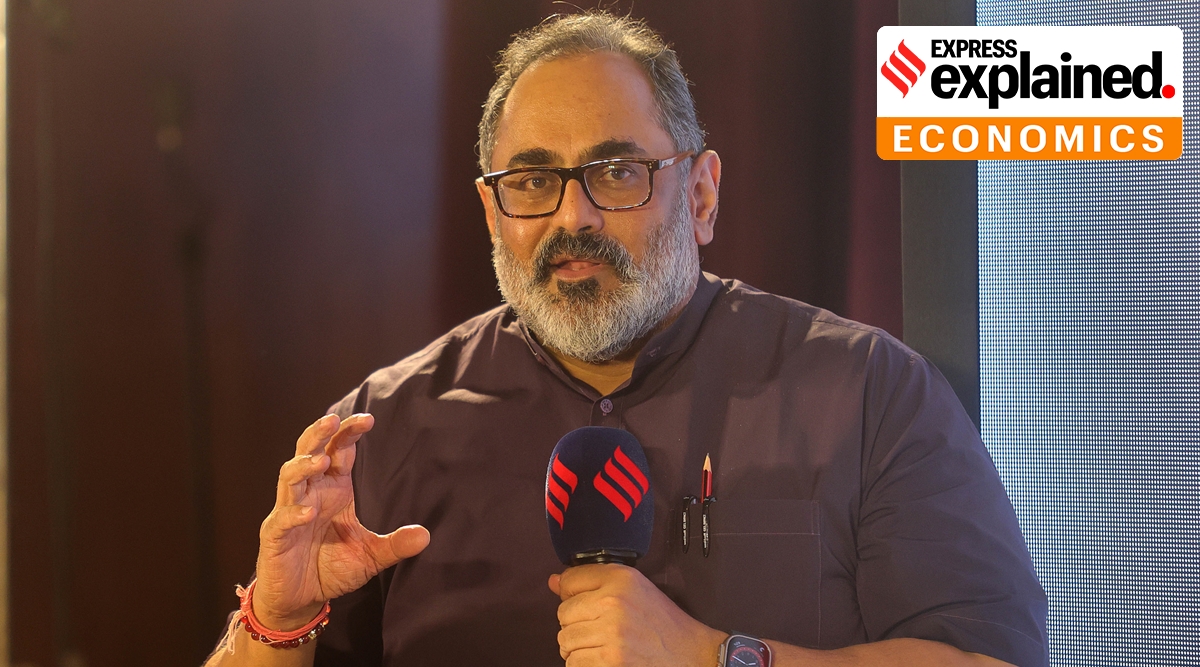The issue has also come up in meetings between US and Indian officials after American companies including Apple, Dell, and HP urged the US government to ask New Delhi to reconsider its policy. Last month, it was a key point of discussion during the trade ministerial meeting between the two countries.
With New Delhi set to host the final leg of the G20 Summit in a few days, which will be graced by some of the world’s most powerful leaders — including US President Joe Biden, who is expected to take up the issue of import restrictions with Prime Minister Narendra Modi — the strategy definitely called for some rebranding.
Enter “import management system”. On Sunday (September 3), The Indian Express reported that the Centre is conducting consultations on a new system through which it aims to monitor the sources from which IT hardware is being imported. On the table is a new proposal: introducing a condition that finished IT hardware such as laptops, personal computers and servers can only be imported from “trusted geographies”.
Amid a deepening rift between New Delhi and Beijing, this is a move aimed at curbing imports specifically from China.
From import restriction to import management
On August 3, the Directorate General of Foreign Trade (DGFT) issued a notification stating that companies must obtain a licence before importing laptops and other devices – to be implemented with immediate effect. Following the adverse reactions, it issued another notification a day later which gave the industry a three-month reprieve. So, import of such devices will be “restricted” from November 1.
The licensing requirement is now expected to be removed, and replaced with an import management system. While mindful of the criticism of the previously proposed policy, New Delhi also does not want to compromise on its aim of building India as an electronics manufacturing hub and crucially, wants companies to establish new supply chains that are not as dependent on China.
By introducing a requirement to allow imports of finished IT hardware only from “trusted” regions, it aims to achieve just that. After all, it is a strategy that the government has already used in the telecom sector.
Strategy already used in the telecom sector
In June 2021, the Central government launched the ‘trusted telecom portal’ and signalled the implementation of the National Security Directive on Telecommunication Sector (NSDTS).
Under the directive, telecom companies are mandatorily required to connect in their networks only those new devices which are designated as “trusted products” from “trusted sources”. Post the 5G spectrum auction last year, operators like Reliance Jio and Bharti Airtel have signed agreements with companies like Ericsson and Samsung, excluding Chinese majors Huawei and ZTE.
Rajeev Chandrasekhar, Minister of State for Electronics and IT, confirmed the government’s intention of allowing imports from only trusted places to The Indian Express.
“With the scheme for IT hardware manufacturing, there is going to be a significant momentum in the manufacturing of laptops and servers in India. In addition, we recognise that there will always be an import component to meet domestic requirements, especially in the high-performance end,” Chandrasekhar said.
“To that end, we want to put in place an import management system that puts the onus on the vendor to ensure that their supplies are from trusted sources only. We see the foreign supply chain becoming more trusted and its sources much more reliable than what it is today,” he added.
Most Read
India vs Nepal Highlights, Asia Cup 2023: IND into the Super 4 with 10 wicket win, fifties from Gill and Rohit
Free Fire India launch postponed by a few more weeks: No official launch date yet
Why New Delhi is wary of Beijing
Since the Galwan clashes in 2020, India has taken a number of policy measures to cut Chinese productions – both goods and services – from its market. And laptops and personal computers is an area where New Delhi’s import dependence on Beijing is quite high.
India has seen an increase in imports of electronic goods and laptops/computers in the last few years. During April-June this year, the import of electronic goods increased to $6.96 billion, from $4.73 billion in the same period a year ago. This accounts for share of 4-7 per cent in India’s overall imports.
The highest share of imports is in the category of personal computers including laptops, and palmtops, under which imports from China stood at $558.36 million in April-May this year as against $618.26 million in the year-ago period. Notably, China accounts for roughly 70-80 per cent of the share of India’s imports of personal computers, laptops.

